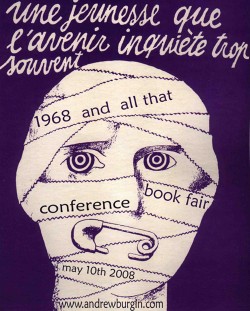LEARNING THE LESSONS
The range of anti-cuts protests which took place at the weekend up and down the country have sparked hope in the viability of a determined fightback against the diet of draconian spending cuts planned by the Coalition – economic shock treatment that will have a devastating impact on the lives of millions of people and families.
The 20,000-strong demonstration that took place in Edinburgh on Saturday, organised by the STUC, was easily the biggest demonstration seen in the Scottish capital since the massive Make Poverty History march back in 2005, which coincided with that year’s meeting of the G8 in Gleneagles.
Just like that event, the STUC demonstration on Saturday was notable for a carnival atmosphere, replete with a plethora of trade union banners, balloons, a brass band and a pipe band. It brought together mainstream politicians, trade unionists in their thousands, church groups, the usual socialist organisations and parties, and concerned citizens. The size of the march was certainly impressive, and if this is the start then the augurs are positive. However, if things fail to move beyond passive demonstrations, no matter how big, the likelihood will be a grim outcome.
The truth is that mass demonstrations in themselves will not be enough to effect a change in course on the part of the Coalition. This is borne out by recent history. The Make Poverty History campaign mentioned earlier, organised by Oxfam and supported by the great and the good from the world of pop and celebrity, caught the entire country’s imagination for an all too brief period. It did so to the extent that the then chancellor, Gordon Brown, was happy to march at the head of its one and only mass demonstration.
It was a movement that fizzled out almost as soon as it began, lacking as it did any foundation of a coherent ideology and alternative to the status quo. Instead, weakened by confusion and the lack of a sharp analysis, it attempted to win over the leaders of the G8 with an abstract moral argument in favour of alleviating poverty throughout the undeveloped world, failing to understand in the process that the system responsible for that poverty is deaf to polite entreaties or requests, and will only ever respond to power.
For in the last analysis power only ever responds to power, a fact which if anyone was in any doubt should be eminently obvious upon even the most cursory examination of the fortunes and trajectory of the antiwar movement.
Again, the euphoria rightly experienced by all those who took part in the mass demonstration in London of February 15, 2003, was premature. Most taking part in that historic event were right to be convinced that it augured the start of something, a counter hegemonic counterweight to a Blair government that was set on the path to war. Unfortunately, and tragically, it proved to be the end and not the start we all hoped it would be. Demonstration after demonstration followed. Each was progressively smaller than the one before. Eventually it became a movement bereft of ideas and paralysed by its inability or unwillingness to move beyond the parameters of passive protest, condemned as a consequence to continue running parallel to the government bearing witness instead of mounting an effective opposition.
The lessons learned from the mass campaigns of the past are not just learned by the left or progressive forces. What the Blair government was able to do in being able to sit out the pressure it came under from the antiwar movement at its peak in early to mid 2003, the Coalition will attempt to replicate when it comes to a national anti-cuts campaign. This is why mass demonstrations such as took place in Edinburgh on Saturday, and the one being organised by the TUC to take place in London early next year, must not constitute the start and end point if we’re to have any chance of winning the most important battle against the Right which this generation is ever likely to face. It is a battle which in defeat will have consequences that will reverberate through succeeding generations, rolling back most of the progressive reforms and concessions won by the working class over the previous century.
Fortunately, compelling the majority of people to join this movement and fightback will be material necessity rather than the moral outrage that was the driving force behind the antiwar movement at the height of its support. The trade union movement will be key. Its leadership must plan for coordinated industrial action that is sustained and which transcends sectional interests. Workplaces, communities, schools and colleges must be turned into bastions of resistance, wherein local and in many cases new forces and voices will emerge to drive things forward.
No group or organisation has the right to claim overall leadership or stewardship to any fightback at this stage, though the TUC is currently in the best position to provide the coherence required in terms of the coordinated industrial action that must lie at its heart. Outwith trade union ranks the various campaigns that have been set up should try to unite as soon as possible. Sectarianism is a crime under the present circumstances, and those guilty of it should be ostracised. As the months pass an organic leadership consisting of those who are capable of providing the most effective practice based on an accurate rendering of mass consciousness may well emerge. Nothing or no one should be allowed to hold it back.
The primary objective of any mass campaign must be to bring the country to a halt if need be, thereby forcing the government to fear those it has already deemed worthy of contempt with its policy of inflicting mass destitution and despair as an economic policy.
The Labour Party leadership, in the wake of the general election defeat and the leadership election that followed, has yet to offer any firm line of march against the cuts.
Hampered by the neoliberal scars of the Blair years, and yet to muster the courage to break with New Labour’s fixation on Middle England and obeisance to the power and influence of Rupert Murdoch, it still refuses to fully embrace the trade unions and their crucial role as the tangible embodiment of collectivist ideas in society. It should and needs to if Labour is to regain the working class support it has lost over the past 13 years.
The failure of a sufficient number of Labour MPs to turn up in Parliament to ensure that the Lawful Industrial Action Bill, introduced last week by John McDonell, reached the next stage is a case in point. It demonstrates that Labour still has some way to go before it can claim to have fully emerged from the Blairite era which saw it lose half its membership along with 5 million votes.
The anti-cuts campaign has only just begun. Learning the lessons of history will go some way to giving it a chance of ending in victory - not only for those about to be impacted by the cuts but by previous generations, who by dint of past victories in the struggle for social and economic justice, the fruits of which have been enjoyed by those who came after, have already pointed the way ahead.











